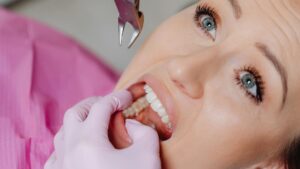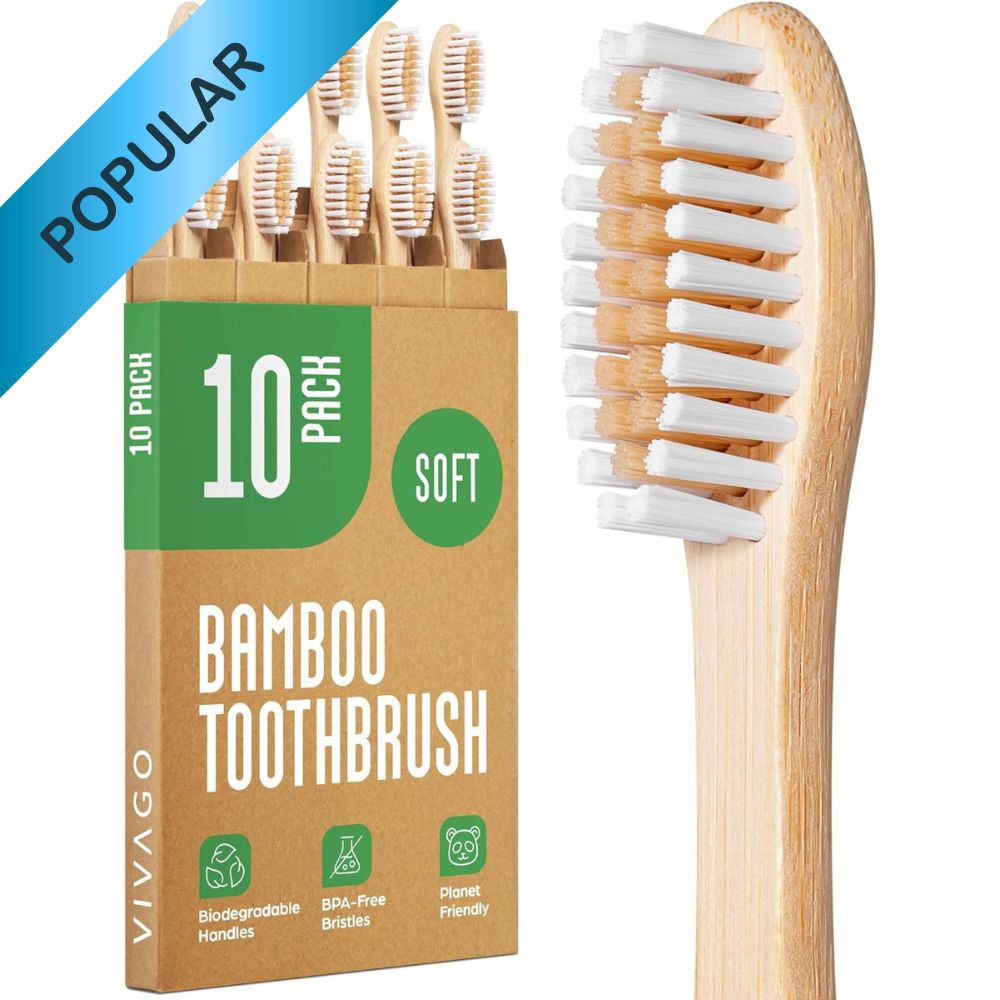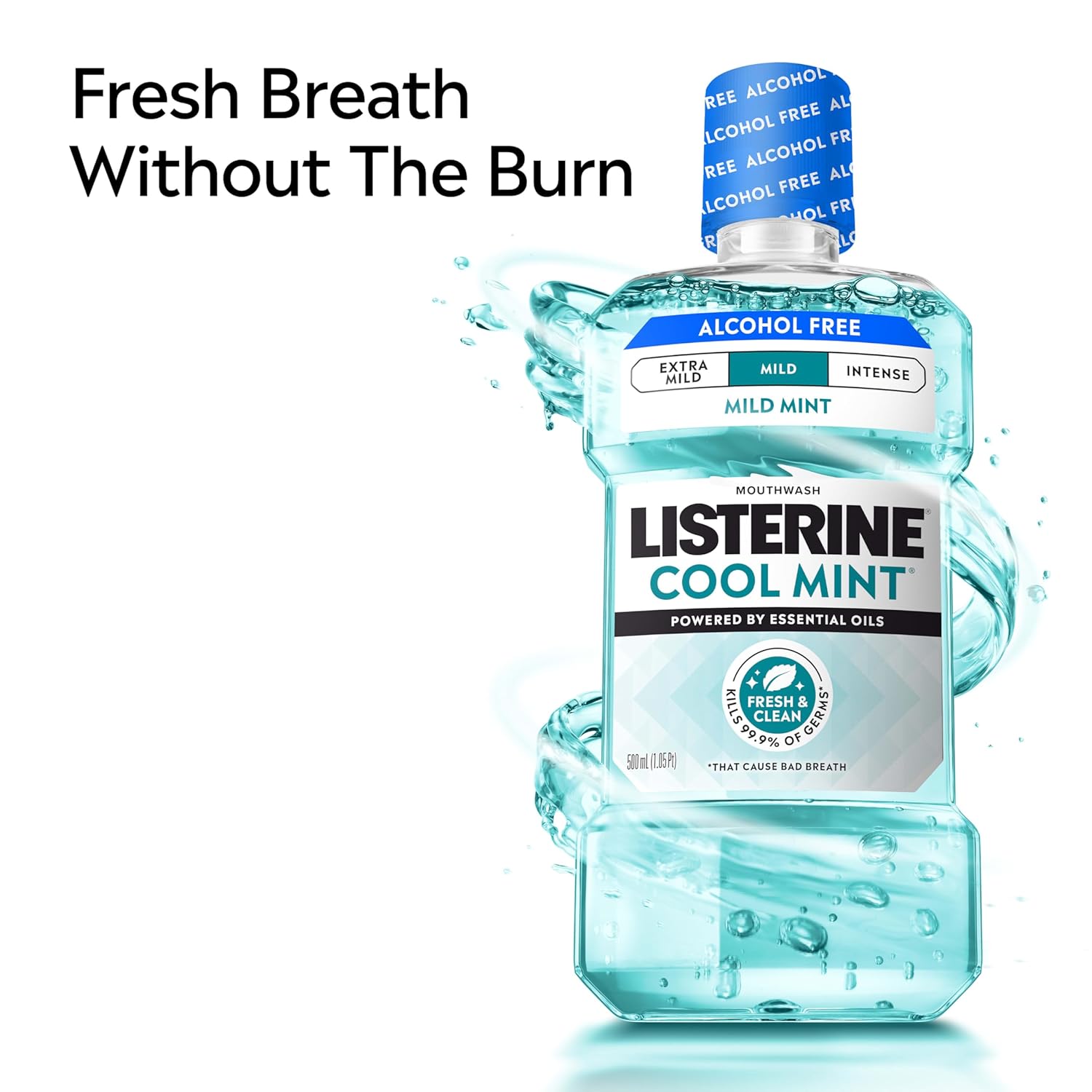Introduction: Why Xylitol for Teeth Is Gaining Popularity
If you’ve ever searched for natural ways to protect your teeth from cavities, chances are you’ve come across xylitol for teeth. But what is xylitol for teeth, really? And how does it benefit your oral health?
Xylitol is a natural sugar alcohol commonly found in fruits and vegetables. Unlike regular sugar, it doesn’t feed harmful bacteria in your mouth. In fact, it does the opposite—it actively works to prevent tooth decay, freshen breath, and support gum health.
More and more dental professionals, including the American Dental Association (ADA), have acknowledged the benefits of using xylitol for teeth and gums as part of a modern dental care routine. This article will guide you through how to use xylitol for teeth, its top advantages, safety tips, and the best xylitol for teeth products to consider.
- Introduction: Why Xylitol for Teeth Is Gaining Popularity
- What Is Xylitol and How Does It Work for Teeth?
- Top Benefits of Xylitol for Teeth
- How to Use Xylitol for Teeth Effectively
- What Does Science Say? (Backed by Research)
- Xylitol for Teeth Side Effects: What to Know
- Xylitol for Teeth Whitening: Myth or Fact?
- Choosing the Best Xylitol for Teeth
- Comparing Xylitol to Other Dental Agents
- Xylitol for Teeth and Gums in Children
- Xylitol in Professional Dental Settings
- FAQs about Xylitol for Teeth
- Final Thoughts: The Sweet Way to a Healthier Smile
What Is Xylitol and How Does It Work for Teeth?
Xylitol is a five-carbon sugar alcohol naturally found in small amounts in some fruits, vegetables, and even the human body. It’s widely used as a sugar substitute in dental products like gum, mints, toothpaste, and mouthwashes.
✔️ How Xylitol Works:
- Starves harmful bacteria: Streptococcus mutans (a major cavity-causing bacteria) cannot metabolize xylitol, which stops their growth.
- Maintains pH balance: It neutralizes acids in the mouth, preventing enamel erosion.
- Stimulates saliva production: This helps in naturally cleaning the mouth and strengthening enamel.
✅ Note: Unlike regular sugar, xylitol helps fight cavities instead of causing them.
Top Benefits of Xylitol for Teeth
1. Reduces the Risk of Cavities
Multiple studies, including those published in PubMed, confirm that xylitol significantly reduces the formation of cavities—especially in children.
2. Improves Gum Health
Xylitol has anti-inflammatory properties that reduce plaque and help prevent gingivitis and periodontal disease.
3. Aids in Teeth Remineralization
Saliva production triggered by xylitol helps in remineralizing tooth enamel, making it more resistant to decay.
4. Combats Dry Mouth
Dry mouth can lead to bad breath and tooth decay. Xylitol stimulates saliva flow, which alleviates this condition naturally.
5. Freshens Breath
By reducing bacteria and increasing moisture, xylitol for teeth mouthwash and chewing gum help eliminate bad breath.
6. Helps with Plaque Reduction
Xylitol disrupts the ability of bacteria to stick to the tooth surface, effectively reducing plaque buildup over time.
7. Supports Long-Term Oral Health
Using xylitol daily as part of a consistent oral hygiene routine can lead to healthier teeth and gums over the long run.
How to Use Xylitol for Teeth Effectively
Using xylitol is simple, but consistency is key. Here’s how to incorporate it into your daily routine:
🔹 Daily Recommended Dose:
5–10 grams per day, divided into 3–5 doses.
🔹 Best Ways to Use Xylitol:
- Chewing Gum or Mints: Choose ADA-approved xylitol gum and chew after meals.
- Toothpaste and Mouthwash: Look for “xylitol” in the ingredient list.
- Xylitol Powder: Add to water as a rinse or use as a sugar substitute in cooking.
- Oral Sprays: Convenient for on-the-go use, especially helpful for dry mouth.
- Xylitol Lozenges: Slowly dissolve in the mouth for prolonged exposure.
💡 Note: Start with small doses to allow your body to adjust and avoid mild digestive issues.
What Does Science Say? (Backed by Research)
Studies published on PubMed Central and supported by the American Academy of Pediatric Dentistry confirm that children who chew xylitol gum daily experience up to 70% fewer cavities.
According to the Mayo Clinic and WebMD, xylitol is considered safe when consumed within recommended limits. However, overconsumption may cause mild gastrointestinal discomfort.
🔍 Related Insight: Research from the University of Colorado Anschutz Medical Campus highlights xylitol as a “true cavity blocker” when used consistently in gum or oral rinses.
Clinical data show that 6 months of xylitol usage can significantly improve oral bacterial balance and reduce plaque scores.
Xylitol for Teeth Side Effects: What to Know
While generally safe, there are some considerations:
- Digestive issues: High doses may cause gas or bloating in some people.
- Toxic to dogs: Even small amounts can be deadly to pets. Keep xylitol products out of reach of animals.
- Allergic reactions: Rare, but monitor if trying it for the first time.
❌ Warning: Never assume all sugar-free products are safe—always check the label for xylitol content.
🚫 Who Should Be Cautious?
- Individuals with IBS or sensitive digestive systems
- Pet owners (keep out of reach of animals)
- People new to sugar alcohols (start with low doses)
Xylitol for Teeth Whitening: Myth or Fact?
While xylitol doesn’t whiten teeth like peroxide-based products, its ability to prevent stains and plaque buildup can help maintain a brighter smile. It’s a supportive agent, not a bleaching one.
Combine xylitol toothpaste with good brushing habits, a balanced diet, and regular dental checkups to enhance your smile naturally.
Choosing the Best Xylitol for Teeth
When selecting the best xylitol for teeth, consider:
🔹 Look for ADA-Approval
Products endorsed by the American Dental Association have undergone rigorous safety and efficacy testing.
🔹 Check Xylitol Content
Choose products that list xylitol among the top three ingredients.
🔹 Go for Trusted Formats
- Xylitol chewing gum (e.g., Spry, Epic)
- Xylitol toothpaste and mouthwash
- 100% pure xylitol granules for DIY use
🔹 Buy from Reputable Brands
Avoid overly processed xylitol sources with artificial additives. Choose brands with transparent ingredient sourcing and manufacturing processes.
💡 Remember: Always check for clinical evidence or certifications on the packaging before purchasing.
Comparing Xylitol to Other Dental Agents
| Feature | Xylitol | Fluoride | Chlorhexidine |
|---|---|---|---|
| Reduces Bacteria | ✅ Yes | ✅ Yes | ✅ Yes |
| Safe for Kids | ✅ Yes | ✅ Yes (low dose) | ❌ No (unless advised) |
| Taste | ✅ Pleasant (sweet) | ❌ Neutral or bitter | ❌ Bitter |
| Daily Use Recommended | ✅ Yes | ✅ Yes | ❌ No (short term only) |
| Whitening Properties | ❌ No | ✅ Some | ❌ No |
Xylitol for Teeth and Gums in Children
Xylitol is especially beneficial for children, whose teeth are more vulnerable to decay. Pediatric dentists often recommend xylitol-based gum or candies to reduce bacteria levels.
• Use in Small Doses
Give children xylitol gum after meals or snacks to neutralize acids and reduce bacteria.
• Ideal for Preventive Dental Care
Combined with regular brushing and dental visits, xylitol can significantly lower the risk of childhood cavities.
Xylitol in Professional Dental Settings
Some dental clinics use xylitol-based treatments as part of preventive oral care plans. This includes:
- Xylitol varnishes
- Professional fluoride treatments with xylitol
- Custom gum and rinse recommendations
Dentists also recommend xylitol for patients undergoing orthodontic treatment, where cleaning around brackets can be challenging.
FAQs about Xylitol for Teeth
Can xylitol reverse cavities?
No, but it can help remineralize early-stage enamel damage and stop new cavities from forming.
Is xylitol safe for kids?
Yes, in moderate amounts. Many pediatric dentists recommend xylitol gum to help reduce childhood cavities.
Can I use xylitol daily?
Yes, up to 10 grams per day split into multiple uses is considered safe.
Is xylitol better than fluoride?
They serve different purposes. Xylitol helps reduce bacteria, while fluoride strengthens enamel. Using both offers the best protection.
Where can I find quality xylitol products?
Look for ADA-approved gums, mints, and toothpaste from trusted brands online or in pharmacies.
Final Thoughts: The Sweet Way to a Healthier Smile
Whether you’re looking to prevent cavities, reduce plaque, improve gum health, or combat bad breath, xylitol for teeth is a powerful ally. It’s natural, safe, effective, and backed by science.
Incorporate it into your daily routine through chewing gum, toothpaste, mouthwash, or lozenges. Just remember: consistency is key. With regular use and a balanced oral care regimen, you can enjoy the benefits of xylitol for teeth for years to come.
🌟 Start today. Let xylitol work its magic for your smile!
Disclaimer: The content provided in this article is for educational and informational purposes only. It does not substitute professional medical advice, diagnosis, or treatment. For guidance specific to your dental condition or recovery, please consult your dentist, oral surgeon, or licensed healthcare provider.



















0 Comments